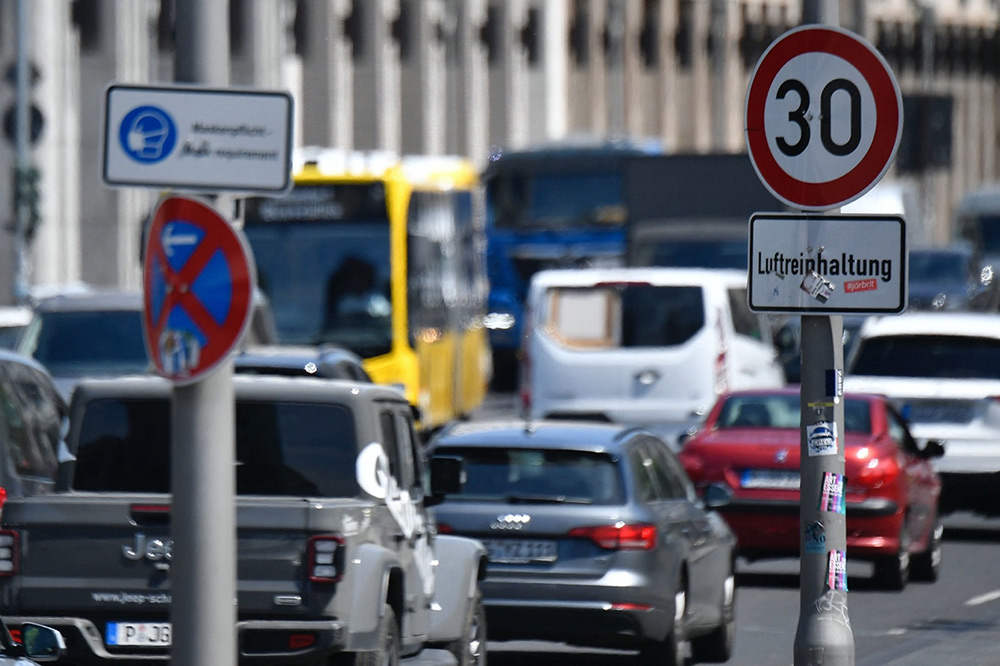欧盟诉德国二氧化氮排放超标胜诉

欧盟委员会(European Commission)在对德国的诉讼中获胜。6月3日,欧盟最高法庭裁定,德国政府违反了清洁空气法。
根据欧洲法院(European Court of Justice)的一项裁决,德国在2010年至2016年期间“系统且持续地”违反欧盟空气质量指令,并突破了二氧化氮的年排放上限。
这一裁决使得双方的长期争端尘埃落定。布鲁塞尔方面也因此有了法律依据,现在其可以要求柏林方面对这一致癌的有害气体采取治理措施。
而至于德国,他们希望通过所谓的类型批准程序,证明违规行为实际上是欧盟委员会的过错——因为在德国看来,委员会没有适当立法限制柴油车的排放,这是问题的主要原因。
不过,这一论点并未能说服法官。
“在欧盟标准范围内的机动车并不是二氧化氮过量排放的唯一原因,除此之外,适用于机动车类型批准的欧盟规定不能免除成员国遵守规定中设置的限值的义务。”欧洲法院在一份声明中表示。
德国这一欧盟最大的成员国应当采取何种进一步措施,将交由欧盟委员会和德国总统乌苏拉•冯•德莱恩来决定。
但是,任何诸如严厉罚款的惩罚性举措,都可能以双方再次出庭而告终。
值得庆幸的是,由于德国在之后的几年大幅降低了环境二氧化氮浓度(具有讽刺意味的是,部分原因与“柴油门”丑闻有关),双方或将避免事态升级。
大众汽车(Volkswagen)的排放欺诈事件于2015年9月在美国被揭露,撕开了欧洲全行业广泛欺诈内幕的一角。为了减少柴油消耗,许多汽车制造商会依据一项原意为保护发动机免受过度磨损的条款,把尾气后处理系统设置成时常自动关闭的状态。
此后,相关法规逐步出台,打击这种偷排行为。今年年初以来,法律漏洞已被完全补上。
德国环境部长桑娅•舒尔茨在发给《财富》杂志的一份声明中表示:“柴油乘用车的新尾气标准,能够确保越来越多的汽车在行驶道路上不仅仅是在实验室里维护空气清洁。”
德国曾有90个城市和大都市地区的二氧化氮年浓度超过了40微克/立方米,但这一数字在2019年就降到了25个。去年仅剩6个——不过这可能与疫情相关的封锁有关。
欧盟委员会于2018年10月提交针对德国的诉状。该委员会并未回应置评请求。(财富中文网)
编译:杨二一
欧盟委员会(European Commission)在对德国的诉讼中获胜。6月3日,欧盟最高法庭裁定,德国政府违反了清洁空气法。
根据欧洲法院(European Court of Justice)的一项裁决,德国在2010年至2016年期间“系统且持续地”违反欧盟空气质量指令,并突破了二氧化氮的年排放上限。
这一裁决使得双方的长期争端尘埃落定。布鲁塞尔方面也因此有了法律依据,现在其可以要求柏林方面对这一致癌的有害气体采取治理措施。
而至于德国,他们希望通过所谓的类型批准程序,证明违规行为实际上是欧盟委员会的过错——因为在德国看来,委员会没有适当立法限制柴油车的排放,这是问题的主要原因。
不过,这一论点并未能说服法官。
“在欧盟标准范围内的机动车并不是二氧化氮过量排放的唯一原因,除此之外,适用于机动车类型批准的欧盟规定不能免除成员国遵守规定中设置的限值的义务。”欧洲法院在一份声明中表示。
德国这一欧盟最大的成员国应当采取何种进一步措施,将交由欧盟委员会和德国总统乌苏拉•冯•德莱恩来决定。
但是,任何诸如严厉罚款的惩罚性举措,都可能以双方再次出庭而告终。
值得庆幸的是,由于德国在之后的几年大幅降低了环境二氧化氮浓度(具有讽刺意味的是,部分原因与“柴油门”丑闻有关),双方或将避免事态升级。
大众汽车(Volkswagen)的排放欺诈事件于2015年9月在美国被揭露,撕开了欧洲全行业广泛欺诈内幕的一角。为了减少柴油消耗,许多汽车制造商会依据一项原意为保护发动机免受过度磨损的条款,把尾气后处理系统设置成时常自动关闭的状态。
此后,相关法规逐步出台,打击这种偷排行为。今年年初以来,法律漏洞已被完全补上。
德国环境部长桑娅•舒尔茨在发给《财富》杂志的一份声明中表示:“柴油乘用车的新尾气标准,能够确保越来越多的汽车在行驶道路上不仅仅是在实验室里维护空气清洁。”
德国曾有90个城市和大都市地区的二氧化氮年浓度超过了40微克/立方米,但这一数字在2019年就降到了25个。去年仅剩6个——不过这可能与疫情相关的封锁有关。
欧盟委员会于2018年10月提交针对德国的诉状。该委员会并未回应置评请求。(财富中文网)
编译:杨二一
The European Commission emerged victorious from its court case against Germany, after the EU’s highest tribunal found on Thursday that the German government was in breach of clean air laws.
Germany had violated the EU Air Quality Directive “by systematically and persistently exceeding” the annual limit for nitrogen dioxide (NO2) emissions during the years 2010 through 2016, according to a ruling by the European Court of Justice.
The verdict settles a long-running dispute and gives Brussels the legal ammunition to now demand Berlin take action against a harmful gas found to be carcinogenic to humans.
For its part, the country aimed to prove its transgressions were actually the fault of the European Commission for not properly legislating emissions limits for diesel vehicles, the main cause of the problem, through the so-called type approval process.
The argument failed to convince justices, however.
“Apart from the fact that motor vehicles subject to EU-level standards are not the only cause of NO2 emissions, EU rules applicable to type approval of motor vehicles cannot exempt member states from their obligation to comply with the limit values established by the directive,” the court said in a statement.
What further steps might now be taken against the EU’s biggest member state are now at the discretion of the Commission and its German President, Ursula von der Leyen.
However, any attempt to impose punitive measures such as stiff fines would likely end up with both sides in front of the court once more.
Fortunately for both, they will likely be able to avoid any escalation, given the country has substantially reduced ambient NO2 concentrations in subsequent years, ironically thanks in part to the Dieselgate scandal.
Uncovered in the U.S. in September 2015, Volkswagen’s emissions fraud helped reveal a broader industrywide practice in Europe. To reduce diesel fuel consumption, numerous carmakers designed their exhaust gas aftertreatment systems to often switch off automatically under a clause meant to protect engines from excessive wear and tear.
Regulations have since been phased in to clamp down on this practice, and the legal loophole has now been fully closed since the start of this year.
“New exhaust gas standards for diesel passenger cars ensure more and more cars are clean on the road and not just in a laboratory,” German environment minister Svenja Schulze said in a statement sent to Fortune.
Whereas 90 German cities and metropolitan areas exceeded annual nitrogen dioxide concentrations of 40 micrograms per cubic meter, that number dropped to 25 in 2019. Last year it fell to just six, although this sharp drop is likely linked to pandemic-related shutdowns.
The EU Commission, which filed the petition in October 2018, could not be reached for comment.













